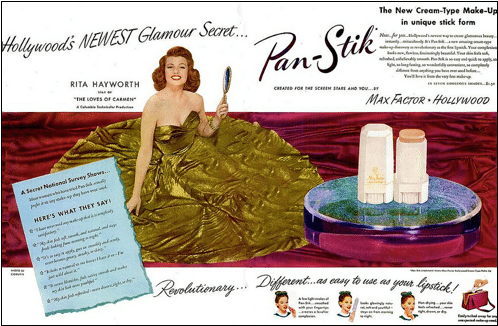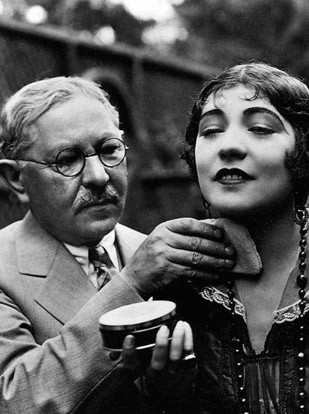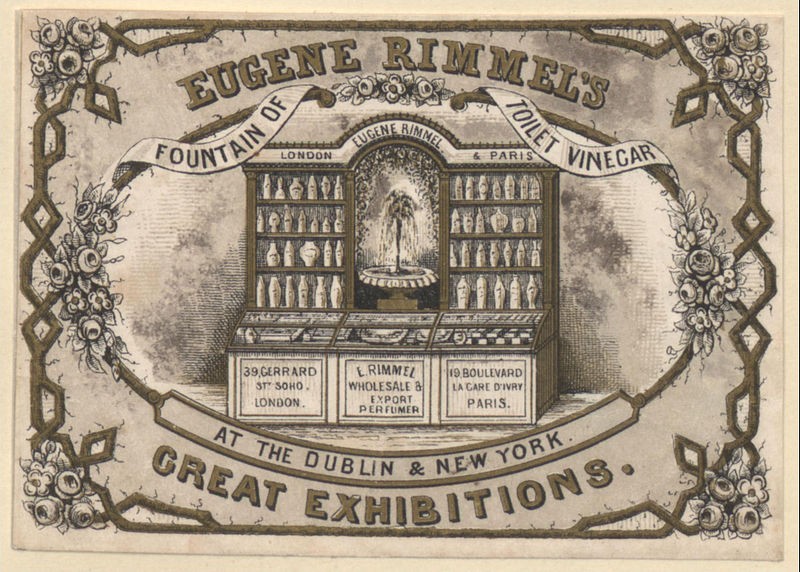When most people think of beauty, the first images that come to mind are the glamorous, beautiful women who graced our movie and TV screens, captured our imaginations, and won our hearts. Rarely do we stop to consider the people who shaped the industry; the people behind the magic that produces such luminous beauty for our viewing pleasure, and the affordable products that make it possible for women to enhance their own beauty at home. Even though the beauty industry is dominated by women, many of the game changers were men who started companies that became household names.
Eugene Rimmel – Mascara
Eugene Rimmel began his professional career at 14 years old in 1820, as an apprentice perfumer in the House of Rimmel, a perfumery founded by his father. Ten years later, young Eugene was not only an accomplished perfumer, but a visionary in the beauty industry. His personal hygiene products, including soap, mouth rinse, and pomades, were must-haves for high society London. After his death in 1887, his sons carried on his legacy, taking the company international with an extensive line of eye makeup that featured revolutionary mascaras. The drama of lush, sweeping lashes we favor today began with Rimmel’s fascination with color…and with his instinctive genius for marketing.
Max Factor

Photo credit: 1950’s Unlimited
When it comes to changing the beauty game, Max Factor is in a class by himself. In the early 1900s, he introduced the principle of “colour harmony” in Hollywood…the notion that specific color combinations of cosmetics should be based on complexion, hair, and eye color for the most complimentary look. His work with Hollywood’s greats rocketed him to fame alongside the actors and actresses of the day. Early successes include his development of flexible foundation that replaced the stiff, heavy greasepaint used on stage.
Factor even helped legitimize the image of performers, who were commonly considered disreputable, by introducing the public to the wonders of eyebrow pencils and eye shadow, previously available only in theatrical lines. Four years later, he launched a full line of cosmetics, coining the name “make-up” to describe his products. In 1928, he introduced a new product that he called lip pomade – today, we call it lip gloss. His next blockbuster invention on the beauty scene was introduced in 1935; the first commercial foundation, called Pan-Cake would hit the market shortly after its introduction to the file industry. After he died in 1938, Max Factor’s legacy was carried on by his son, Max Factor, Jr., who continued to bring new and innovative products to the market.
Lawrence Gelb – Clairol
Clairol is one of the most well-known names in the world; offering a product line that put vibrant, youthful hair color in the hands of every woman. In the midst of the Great Depression, Clairol founder Lawrence Gelb was a chemist on a mission. He took his family to Europe in search of a product to bring home and market in the U.S. He found a hair coloring process unlike anything in current use, color that penetrated the hair shaft, not coated the hair. The result was softer, more natural color. Lawrence and his wife Joan knew a good thing when they saw it. Together, they brought Clairol Oil Shampoo Tint home to New York and introduced it to hair professionals in 1938. The Gelbs divorced in 1940 and Joan left the business.
By 1950, Lawrence had purchased the formula from the German chemist who developed it, and had improved the product from a time-consuming five step process to a single step to lighten, color, condition and shampoo, leaving the hair clean, shining, soft, and newly tinted in a matter of 20 minutes. Salon hair color appointments increased by over 500%. In addition to products, the company offered education. In 1956, Miss Clairol “hair color bath” was introduced to the market for home use, and a revolution was born. “Does she…or doesn’t she?” became one of the most famous advertising campaigns in history, changing the way consumers view hair coloring forever.
Charles Revson – Revlon
Revlon founder Charles Revson’s love for color led him from humble beginnings in the clothing industry to soaring success in cosmetics. After he was fired from a job as a buyer for the Pickwick Dress Co. in New York (this proved to be a bad decision on Pickwick’s part), he tried his hand at selling nail polish in New Jersey. Impressed with how well the product sold, Charles approach his brother about starting their own company. In 1932, Charles, his brother Joseph, and a partner, chemist Charles Lachman, went into business, naming the company Revlon. The “L” in Revlon is for Lachman. Charles Revson served as CEO and also as chief salesman for the budding enterprise. He took his sharp eye for subtle differences in color into the manufacturing process, having a hand in every aspect of the business from the lab to picking names to testing the polish on himself before hitting the road to make sales.
By 1950, World War II had ended and a new era of hope and optimism was in full swing. Revlon introduced the concept of everyday glamor with a wildly successful line of matching lip and nail shades marketed as “Fire and Ice.” Ten years later, Charles expanded to the international look, touting his now extensive line of beauty products as the American Look.
Male influence in the cosmetics industry is rooted in the past, but not constrained there. In 1969, Antonio Seabra founded a door-to-door cosmetics line along the lines of Avon that has made him a self-made billionaire and one of the richest people in the world. In 2010, Natura’s net revenues were reported at $660 million, making it one of the most successful companies in the industry today.
With the beauty industry expanding in every direction – within the U.S., globally, and to new consumers, most notably men – and the constant demand for new and better products, it’s no wonder more men are entering cosmetics schools in search of lucrative, stable careers. Even during times of economic disaster, the beauty industry has historically flourished. Beautiful never goes out of style.





Comments are closed.